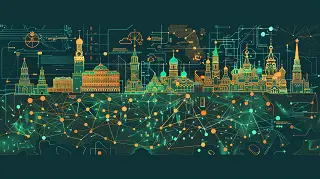400-680-8581
欢迎访问:路由通
 中国IT知识门户
中国IT知识门户
 中国IT知识门户
中国IT知识门户

概念核心
影响作为一种普遍现象,指事物之间的相互作用导致的状态变化或后果。通常在自然科学、社会科学及日常生活语境中出现,涵盖从微小个体到庞大系统的广泛层面。其本质在于传递力量或信息后产生的连锁反应,如自然事件对环境的扰动或人为决策对社会的震荡。理解影响的关键在于其动态特性——它并非静态结果,而是持续演化的过程,可随时间推移显现累积效应。 类别划分概览 影响可划分为三大基础类别:首先,积极影响指带来益处或进步的作用,例如技术创新提升生活质量;其次,负面影响涉及损害或退化的结果,如环境污染导致生态失衡;最后,中性影响则表现为无明显利弊的中立状态,常见于日常微小互动。此外,按作用范围区分,直接影响是直接作用于对象的改变,间接影响则通过中介环节产生涟漪效应。这种分类架构有助于快速把握影响的多元维度。 核心特征与测量 影响的核心特征包括不可逆性——许多改变一旦发生难以复原,以及不确定性——因变量交织导致结果难以精准预测。测量影响时,常用定量与定性方法结合:前者通过数据指标如发生率或强度值评估规模,后者依赖主观描述分析深层含义。例如,气候变化对农业的影响可量化减产百分比,而文化传播的影响则需访谈解码社会心态变迁。 现实意义与挑战 在现实中,影响管理成为现代决策的核心挑战。积极影响的放大策略包括预防性规划减少负面风险,如制定政策缓解经济波动冲击;而挑战在于平衡短期利益与长期后果,常因信息不全引发误判。社会实践中,影响意识培养至关重要——鼓励个体评估自身行为涟漪,以促进可持续发展。简言之,理解影响是应对复杂世界的基石。环境影响维度
环境影响聚焦自然系统与人类活动的交互作用,可细分为生态、气候及资源三个子类。生态影响指生物多样性所受冲击,如森林砍伐导致物种灭绝率上升,其连锁效应波及食物链稳定。气候影响涉及全球变暖等大趋势,二氧化碳排放引发极端天气频发,海平面上升威胁沿海城市安全。资源影响则关乎能源与物质消耗,过度开采矿产引发土壤退化,水资源短缺加剧区域冲突。这些影响往往呈现长期累积性,修复成本高昂,需国际协作推动绿色转型。 社会文化层面剖析 社会文化影响体现为群体行为与价值观的变迁,主要涵盖教育、社区及媒体三大领域。教育影响指知识传播对个体认知的塑造,例如数字化学习改变传统课堂模式,提升效率但可能加剧城乡差距。社区影响关注人际关系网络,城市化进程削弱邻里纽带,引发孤独感上升;正面案例如公益项目增强凝聚力。媒体影响尤为显著,社交平台放大信息传播速度,假新闻泛滥导致公众信任危机,同时催生新文化表达形式如短视频艺术。这些影响交织成社会结构动态,需伦理框架引导健康演化。 经济技术领域探究 经济技术影响驱动现代文明进步,可分为创新、市场及就业三类。创新影响源于技术突破,人工智能应用提升生产效率,但自动化取代低技能岗位引发失业潮。市场影响反映经济波动,全球化贸易加剧竞争,中小企业面临生存压力;正面例子包括电子商务创造新消费模式。就业影响关联劳动力结构,远程工作革命重塑职场文化,促进工作生活平衡,却伴随心理健康挑战如职业倦怠。这类影响常具双面性,政策调控如技能培训可化解风险。 心理个人角度阐释 心理个人影响深入个体内心世界,涵盖认知、情绪及行为三方面。认知影响涉及思维模式改变,信息过载削弱专注力,导致决策疲劳;反观正面效应,终身学习习惯增强批判性思考能力。情绪影响指情感状态波动,社会压力源如工作竞争引发焦虑症高发,而支持性人际关系则缓冲抑郁风险。行为影响聚焦行动选择,习惯成瘾如网络沉迷破坏日常节奏,干预措施如正念训练可重塑健康习惯。这些微观影响累积为宏观社会现象,强调自我觉察的重要性。 综合管理策略探讨 有效管理影响需系统策略,分预防、评估及适应三阶段。预防策略重在源头控制,例如立法限制污染排放,或企业采纳可持续供应链减少生态足迹。评估策略依赖科学工具,生命周期分析法量化产品全周期影响,大数据模型预测社会趋势风险。适应策略则应对已发生后果,韧性城市建设抵御自然灾害,心理咨询服务支持心理创伤恢复。成功案例如碳中和目标驱动全球合作,凸显跨领域整合的价值——未来方向在于培养影响素养,使人人都能成为负责任的变革主体。 346人看过
346人看过